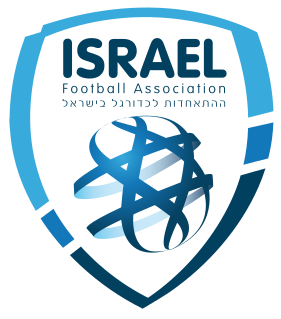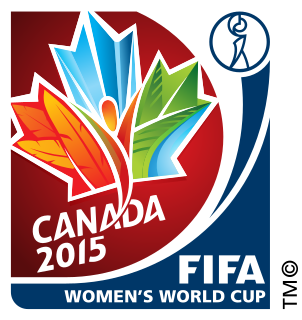
The 2002 FIFA World Cup was the 17th FIFA World Cup, the quadrennial world championship for men's national association football teams organized by FIFA. It was held from 31 May to 30 June 2002 at sites in South Korea and Japan, with its final match hosted by Japan at International Stadium in Yokohama.

The 1998 FIFA World Cup was the 16th FIFA World Cup, the world championship for men's national association football teams. It was held in France from 10 June to 12 July 1998. The country was chosen as the host nation by FIFA for the second time in the history of the tournament, defeating Morocco in the bidding process. It was the second time that France staged the competition and the ninth time that it was held in Europe. It was the first World Cup to be held under the presidency of Sepp Blatter. Spanning across 32 days, this is the longest World Cup up to 2022.

The 2014 FIFA World Cup was the 20th FIFA World Cup, the quadrennial world championship for men's national football teams organised by FIFA. It took place in Brazil from 12 June to 13 July 2014, after the country was awarded the hosting rights in 2007. It was the second time that Brazil staged the competition, the first being in 1950, and the fifth time that it was held in South America. Fans and pundits alike consider this edition of the World Cup to be one of the greatest ever held.

The Israel women's national football team represents Israel in international women's football. The Israel women's national football team was established in 1997. Women's Football in Israel was developed as an upside down pyramid by first opening the national team and then after 2 years opening the first women's football league in Israel. Women's Football in Israel is struggling to develop because it is lacking investment.

The 2018 FIFA World Cup was an international football tournament contested by men's national teams and took place between 14 June and 15 July 2018 in Russia. It was the 21st FIFA World Cup, a worldwide football tournament held once every four years. It was the eleventh time the championships had been held in Europe, and the first time they were held in Eastern Europe. At an estimated cost of over $14.2 billion, it was the most expensive World Cup to date.
The South American Zone of 2014 FIFA World Cup qualification saw nine teams competing for 4 or 5 berths in the finals. Brazil automatically qualified for the World Cup as the host nation so were not involved in CONMEBOL qualifying. Argentina, Colombia, Chile, Ecuador and Uruguay advanced to the World Cup.
The 2012 OFC Nations Cup was the ninth edition of the OFC Nations Cup organised by the Oceania Football Confederation (OFC).
The 2010 South American Women's Football Championship was the sixth edition of the South American Women's Football Championship, and acted as a qualifier for the 2011 FIFA Women's World Cup and the 2012 Summer Olympics. The tournament was held in Ecuador from 4 November to 21 November 2010, after originally being scheduled for 28 October to 14 November 2010.

The 2015 FIFA Women's World Cup was the seventh FIFA Women's World Cup, the quadrennial international women's football world championship tournament. The tournament was hosted by Canada for the first time and by a North American country for the third time. Matches were played in six cities across Canada in five time zones. The tournament began on 6 June 2015, and finished with the final on 5 July 2015 with a United States victory over Japan.
This page provides the summaries of the AFC Second Round matches for 2014 FIFA World Cup qualification.

The 2014 African Women's Championship, the 11th edition of the tournament, was held in Namibia. This tournament, organized by the Confederation of African Football, was also a qualification tournament for the 2015 FIFA Women's World Cup, with top three qualifying for the finals in Canada. It was played on 11–25 October 2014.

The 2014 Copa América Femenina was the seventh edition of the Copa América Femenina, an association football competition for women's national teams in South America affiliated with CONMEBOL. The tournament was played between 11–28 September 2014 in Ecuador.
The 2015 FIFA Women's World Cup qualification UEFA play-offs decided the eighth and final UEFA qualifier for the 2015 FIFA Women's World Cup.
The third round of OFC matches for 2018 FIFA World Cup qualification began on 7 November 2016 and ended on 5 September 2017.
The South American section of the 2018 FIFA World Cup qualification acted as qualifiers for the 2018 FIFA World Cup held in Russia, for national teams which are members of the South American Football Confederation (CONMEBOL). A total of 4.5 slots in the final tournament were available for CONMEBOL teams.
The 2015 African U-20 Women's World Cup Qualifying Tournament was the 8th edition of the African U-20 Women's World Cup Qualifying Tournament, the biennial international youth football competition organised by the Confederation of African Football (CAF) to determine which women's under-20 national teams from Africa qualify for the FIFA U-20 Women's World Cup. Players born on or after 1 January 1996 were eligible to compete in the tournament.
The 2020 AFC Women's Olympic Qualifying Tournament is the 5th edition of the AFC Women's Olympic Qualifying Tournament, the quadrennial international football competition organised by the Asian Football Confederation (AFC) to determine which women's national teams from Asia qualify for the Olympic football tournament.

The 2018 Copa América Femenina was the eighth edition of the CONMEBOL Copa América Femenina, the quadrennial international football competition for women's national teams in South America affiliated with CONMEBOL. The tournament was played between 4 and 22 April 2018 in Chile.

The Japan women's national football team has represented Japan at the FIFA Women's World Cup on eight occasions in 1991, 1995, 1999, 2003, 2007, 2011, 2015 and 2019. They are the only Asian team to have won the tournament and they are the only team that has won the trophy with a loss during the final tournament. They also were runners-up once.

The Sweden women's national football team has represented Sweden at the FIFA Women's World Cup on eight occasions in 1991, 1995, 1999, 2003, 2007,2011, 2015 and 2019. There were runners up once and three times bronze medalists: in 1991, in 2011 and in 2019










